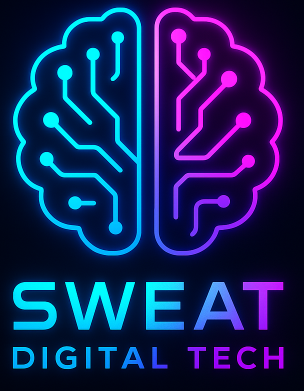The Possible Impact Coming This Decade with the Rise of AGI
The advent of Artificial General Intelligence (AGI) is poised to be one of the most transformative events in human history. Unlike narrow AI, which is designed for specific tasks, AGI possesses the ability to understand, learn, and apply knowledge across a wide range of domains, much like a human being. This article delves into the potential impacts of AGI in the coming decade, exploring its implications across various sectors, ethical considerations, and the societal changes it may bring.
Understanding AGI
Before delving into the potential impacts, it is crucial to understand what AGI entails. AGI, or Artificial General Intelligence, refers to a type of AI that can perform any intellectual task that a human can. This contrasts with narrow AI, which is limited to specific tasks such as language translation or image recognition.
Key Characteristics of AGI
- Adaptability: AGI can adapt to new tasks without human intervention.
- Learning: It can learn from experience and improve over time.
- Understanding: AGI can comprehend complex concepts and apply them in various contexts.
Economic Impacts
The rise of AGI is expected to have profound economic implications. From job displacement to new industries, the economic landscape will undergo significant changes.
Job Displacement and Creation
One of the most discussed impacts of AGI is job displacement. According to a report by McKinsey Global Institute, up to 800 million jobs could be automated by 2030. However, it is also expected that new jobs will be created, particularly in sectors that require human creativity and emotional intelligence.
Case Study: The Manufacturing Sector
In the manufacturing sector, AGI could lead to the automation of routine tasks, increasing efficiency and reducing costs. For instance, companies like Tesla are already using advanced AI systems to streamline production processes. However, this also means that workers in these sectors will need to upskill to remain relevant.
Healthcare Revolution
AGI has the potential to revolutionise healthcare by improving diagnostics, personalising treatment plans, and even discovering new drugs.
Improved Diagnostics
AGI can analyse vast amounts of medical data to identify patterns that may be missed by human doctors. For example, Google’s DeepMind has developed an AI system that can diagnose eye diseases with an accuracy comparable to that of human specialists.
Personalised Treatment Plans
AGI can create personalised treatment plans based on an individual’s genetic makeup, lifestyle, and medical history. This could lead to more effective treatments and better patient outcomes.
Ethical Considerations
The rise of AGI also brings forth numerous ethical considerations that need to be addressed.
Bias and Fairness
One of the major concerns is the potential for bias in AGI systems. If the data used to train these systems is biased, the outcomes will also be biased. Ensuring fairness and transparency in AGI systems is crucial.
Privacy Concerns
AGI systems will have access to vast amounts of personal data, raising significant privacy concerns. Robust data protection measures will be essential to safeguard individual privacy.
Societal Changes
The integration of AGI into society will bring about significant changes in how we live and interact with each other.
Education and Learning
AGI can transform education by providing personalised learning experiences. Students can learn at their own pace, and educators can use data-driven insights to improve teaching methods.
Social Interactions
AGI could also change the way we interact with each other. For instance, AI-driven social platforms could facilitate more meaningful connections by understanding user preferences and behaviours.
Conclusion
The rise of AGI in the coming decade is expected to bring about profound changes across various sectors. While it offers numerous benefits, such as improved healthcare and personalised education, it also poses significant challenges, including job displacement and ethical concerns. As we move forward, it is crucial to address these challenges to harness the full potential of AGI for the betterment of society.
In summary, the key takeaways are:
- AGI is a transformative technology with the potential to impact various sectors.
- Economic implications include both job displacement and creation.
- Healthcare could see significant improvements in diagnostics and personalised treatments.
- Ethical considerations such as bias and privacy need to be addressed.
- Societal changes will include transformations in education and social interactions.
As we stand on the brink of this new era, it is essential to navigate the challenges and opportunities that AGI presents thoughtfully and responsibly.




